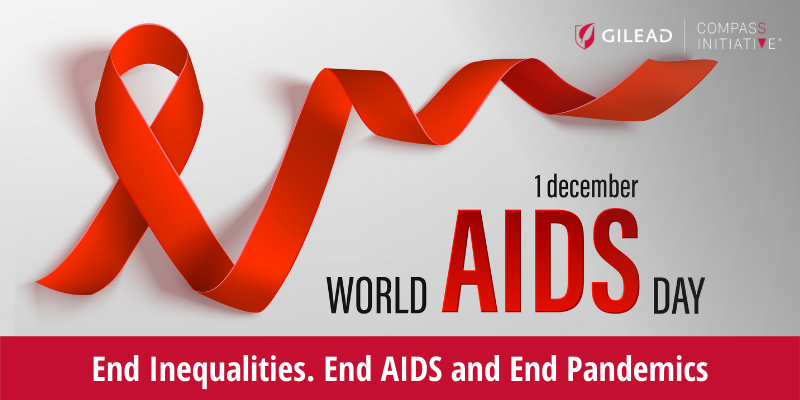Q&A with COMPASS Coordinating Center Directors
Our first contributors need no introduction. Well-known in their respective fields, Patrick Sullivan, PhD, DVM, Nic Carlisle, JD, and Samira

Millions of lives have been lost yet there have been many advances. More than 37 million people live with HIV worldwide. Although there is still no cure for HIV, the collective persistence and advocacy of community members and scientists has led to significant advancements in prevention and treatment. Unfortunately, we still have a long way to go. Racism, stigma, infrastructure shortages, and a lack of high-quality care continue to challenge our ability to end the HIV epidemic, particularly in the US South. Inequities are further perpetuated in our educational, healthcare, housing, transportation, and many other “systems” in the United States, and make it difficult to end this epidemic.
Black and Brown people from low-income communities remain particularly vulnerable to acquiring HIV – not because they engage in behaviors that are different from their White counterparts, but because they lack the appropriate access to resources and support. Stigma in communities, and consequent social isolation and rejection from family, friends, and faith communities impede people’s ability to either engage in or remain in care. Moreover, attacks on voter and transgender rights and racial injustice exacerbate existing inequities.
The COVID-19 pandemic continues to highlight the urgent need to address health inequity head on, especially among Black and Brown communities. Thanks to the work of early advocates, public health professionals, researchers, and physicians who have worked on HIV for the past 40 years, the infrastructure, practices, tools, and lessons learned to quickly respond to the critical needs of those affected by COVID-19 exist. Coordinated and well-funded collaborations between the government, private industry, universities, community-based organizations, faith leaders and dedicated community members in response to COVID-19 were scaled up to quickly address many health inequities in a way that is still not seen for HIV/AIDS. The lessons learned from addressing the HIV/AIDS epidemic helped inform the response to COVID-19, and now it is time to use those enhanced tools and practices to finally end the HIV/AIDS epidemic.
The Gilead COMPASS Initiative® is committed to ending the HIV/AIDS epidemic in the South.To achieve this goal, Gilead Sciences has committed more than $100M over 10 years to 1) Increase local leadership and advocacy in the South; 2) Change public perception of HIV/AIDS in the South; and 3) Improve access to and improve quality of healthcare services for people living with HIV (PLWH) in the South. Gilead funded four Coordinating Centers, including the University of Houston Graduate College of Social Work, Emory University Rollins School of Public Health, Wake Forest University School of Divinity and the Southern AIDS Coalition to partner with and build the capacity of non-profit organizations to support organizations to continue this work.
The Coordinating Centers provide capacity through grants, collaborative learning opportunities, and in depth training. Stigma remains one of the South’s most pervasive challenges, and for this reason the initiatives funded by COMPASS focus on anti-stigma campaigns and interventions, trauma informed care, healing justice and harm reduction approaches, organizational capacity and systems building, and faith based approaches to change traditional narratives about HIV in faith-based spaces.
The Coordinating Centers build the capacity of faith leaders to integrate conversations about HIV, sexuality, love and acceptance into sermons and programming in faith communities, train funded partners to leverage the power of storytelling through major media, social media engagement, videos, podcasts, and community conversations, and help agencies become trauma-informed in their service delivery and operations. Projects that ensure efficient management of agency resources and provide leadership and management skills to non-profit leaders, create interventions that support access to care for patients, and provide advocacy training to inform more inclusive local policies are also supported through COMPASS. These efforts will help to build a more comprehensive and sustainable network of organizations with the capacity, skills, and structure to end the disparate impact of HIV in the south.
To do this, everyone’s involvement is needed! As this 40th year of HIV/AIDS comes to a close, it is important that community leaders and advocates continue to stay persistent about ending the HIV epidemic. New, passionate, creative and radical leadership that cultivates new and non-traditional partnerships, and addresses the root causes of the stigma in all of it’s manifestations – while dismantling and rebuilding broken systems, and demolishing antiquated policies and practices will bring us closer to ending the epidemic, including ensuring voting rights for all so everyone is at the table. This takes engaging community leaders, specifically faith leaders, and supporting all people living with HIV, especially our loved ones. There is still a lot of work to do, and it can be done, but only with the entire community’s involvement will we accomplish ending the HIV epidemic.
Our first contributors need no introduction. Well-known in their respective fields, Patrick Sullivan, PhD, DVM, Nic Carlisle, JD, and Samira
Column By: Tiffany Smith Tiffany lives in Atlanta, GA and works with the Emory COMPASS Coordinating Center. She previously worked
Column By: Tiffany Smith Tiffany lives in Atlanta, GA and works with the Emory COMPASS Coordinating Center. She previously worked
Emory University COMPASS Coordinating Center is excited to announce a monthly webinar series geared towards building the organizational capacity of
©2025 Emory University, Inc. All rights reserved.
When you click this link, you will be directed to an external webpage hosted by LearnUpon LMS.
Kindly note that registration is required, and it’s entirely free of charge.
To access the learning modules, you will need to create a new login, as this platform operates independently and is not affiliated or connected with OpenWater or any other platforms used by the Gilead COMPASS Initiative®.